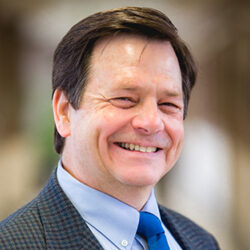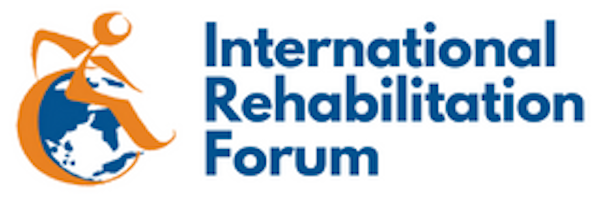With more PM&R professionals, reduced opioid deaths in States, analysis shows.
July 3, 2022
Analysis indicates reduced opioid deaths in states with more physical medicine professionals.
MIDDLEBURY, Vermont - A Vermont physician has found the number of Physical Medicine & Rehabilitation (PM&R) doctors correlates with fewer opioid deaths across the United States.
“While these data do not prove causation, it’s clear the concentration of PM&R doctors as experts in pain management may have a direct effect on patient recovery, and an indirect
influence on pain management policies,” said Dr. Andrew J. Haig, principal investigator.
Haig presented results on the topic at the International Society of Physical and Rehabilitation Medicine's 15th World Congress held July 3 - 7, 2022 in Lisbon, Portugal. His remarks were voted the best oral presentation at the event. An abstract of the paper, which is under review, is posted on the ISPRM site: 4628 - The relationship between adverse opioid events and physical
medicine and rehabilitation expertises in the United States.
With an ongoing opioid crisis in the United States, the field of PM&R or physiatry, a specialty with expertise in non-medication management of pain, can play an important role in changing
approaches to pain management and reducing opioid use in the process, Haig said. An estimated 81,000 people died due to opioid abuse in the U.S. between June 2019 and May
2020 alone, according to the Centers for Disease Control and Prevention.
Haig, professor emeritus at the University of Michigan Medical School and a Middlebury, Vermont physiatrist, said, “We wanted to find out if states with more physiatrists and trainees have fewer adverse opioid events among patients. The team analyzed epidemiological data and found a negative relationship between the number of physiatrists per capita and opioid overdose
deaths. They also found that states with more physiatrists had fewer opioid prescriptions written, suggesting other pain treatment methods could be effective.
PM&R professionals offer many alternatives to opioid use, starting with comprehensive expert care management and patient counseling. Through multidisciplinary rehabilitation and non-opioid medication, physiatrists are able to effectively provide patient case closures with non-addictive side effects.
“While our investigation requires further analyses,” Haig said, “results are supported by previous smaller-scale studies. It’s time to consider the importance of physical medicine in combatting
our opioid crisis.”
Haig said the situation is especially critical in Vermont and New Hampshire, as healthcare systems in northern New England have very few PM&R physicians and extensive opioid use.

About Andrew Haig, MD
A physician and active Emeritus Professor of Physical Medicine and Rehabilitation at the University of Michigan, Dr. Haig is familiar to healthcare executives as the founder of the University of Michigan Spine Program and a member of Noel Tichy Ph.D.’s leadership training team. Andy Haig has worked in environments as diverse as rural Wisconsin, sub-Saharan Africa and Vienna, Austria. His work has been recognized with the top research, teaching, and patient care awards in his field. Dr. Haig has opened a clinical practice, Haig Physical Medicine PLC, www.haigmed.com, in Middlebury, Vermont, to be a demonstration model and home of an international second opinion program. He also is the co-founder of the International Rehabilitation Forum, www.rehabforum.org, a non-profit which brings together people and institutions that have the passion and expertise to build relevant rehabilitation medicine practices in low-resource and isolated regions, aiming at maximizing the independence and leadership of all persons with physical limitations.

